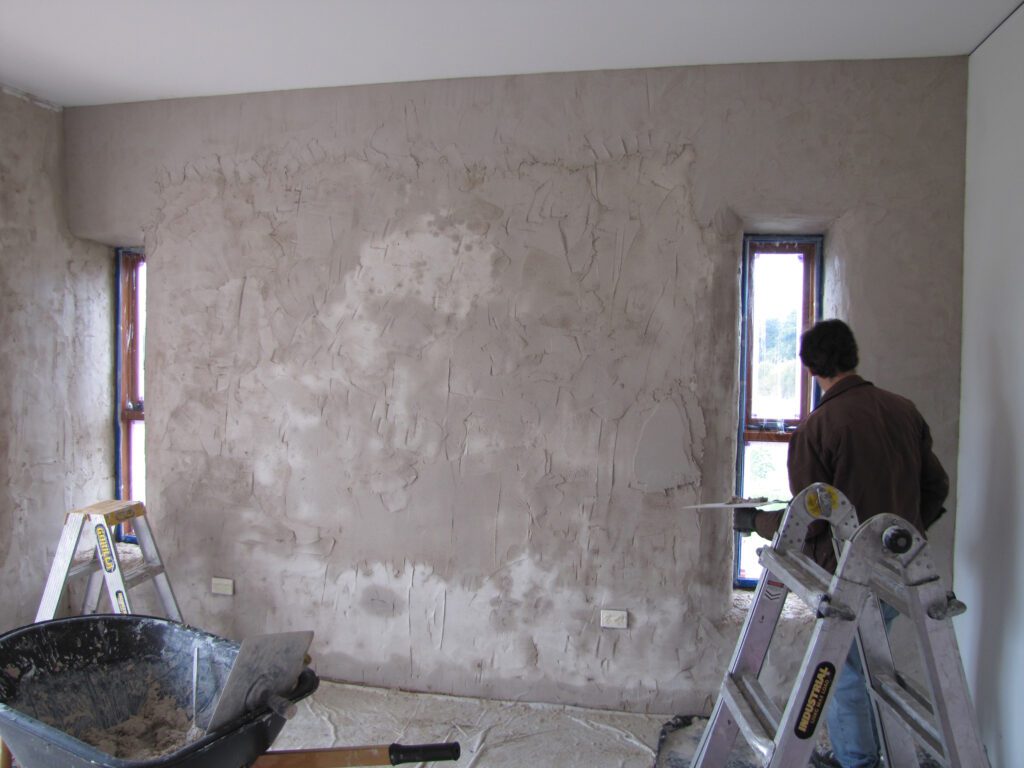Transform your career with lucrative plastering jobs that pay top rates – discover the insider secrets that experienced plasterers don’t want you to know.
Understanding the High-End Plastering Market
The premium plastering sector in Kent has experienced remarkable growth, with high-end projects seeing a 35% increase in 2023. This surge is driven by luxury home renovations, heritage property restorations, and bespoke commercial developments.
High-end plastering jobs typically command rates 40-60% higher than standard projects, with specialist decorative work fetching premium prices of £300-£500 per day.
The most lucrative opportunities lie in:
- Period property restoration
- Ornamental plastering
- Eco-friendly lime plastering
These sectors have shown consistent growth despite economic fluctuations.
Essential Skills and Qualifications That Command Higher Rates
To secure premium plastering jobs, specific skills and qualifications are crucial. Advanced techniques in Venetian plastering, fibrous plastering, and heritage restoration work can increase your daily rate by up to 75%.
The most sought-after qualifications include:
- NVQ Level 3 in Plastering with additional specialist certifications
- Heritage Skills CSCS card for period property work
- Advanced decorative plastering certificates
- Lime plastering specialist qualifications
- Conservation and restoration expertise certification
Building a Premium Professional Profile
Creating a compelling professional profile is essential for attracting high-paying clients. Your portfolio should showcase premium projects, highlighting complex finishes and specialist techniques.
Establish a strong online presence through:
- Professional website featuring high-quality project photographs
- Detailed case studies of premium projects
- Client testimonials from high-end projects
- Regular social media updates showcasing specialist work
- Professional memberships and accreditations display
Networking and Building Relationships with Luxury Clients
Success in the premium market relies heavily on building strong professional relationships. In Kent’s luxury construction sector, 78% of high-end projects are secured through networking and referrals.
Develop connections with architects, interior designers, and property developers through industry events, professional associations, and local business networks.
Maintain regular contact with past clients and establish partnerships with complementary trades to create a robust referral network.
Pricing Strategies for Premium Projects
Effective pricing is crucial for premium plastering work. Research shows that high-end clients are willing to pay up to 200% more for exceptional quality and service.
Consider these pricing elements:
- Day rates for specialist techniques (£300-£500)
- Project-based pricing for large-scale works
- Premium material costs and specialist finish calculations
- Additional charges for design consultation and samples
- Rush job premiums for urgent projects
| Service Type | Standard Rate | Premium Rate | Rate Increase |
|---|---|---|---|
| General Plastering | £150-£250/day | £250-£350/day | 40-60% |
| Specialist Techniques | N/A | £300-£500/day | Up to 200% |
| Decorative Work | £200-£300/day | £300-£500/day | 50-75% |
Managing and Delivering Premium Projects
Excellence in project management distinguishes premium plasterers from standard contractors. High-end clients expect exceptional service, attention to detail, and clear communication throughout the project.
Successful premium project delivery includes meticulous planning, regular client updates, and impeccable site management.
Invest in quality tools and materials, maintain strict quality control measures, and ensure perfect finishing touches that justify premium rates.
Marketing Your Premium Plastering Services
Effective marketing is crucial for attracting high-end clients.
Focus on channels where luxury clients are most active:
- Professional photography of completed projects
- High-end property magazines and local luxury publications
- Targeted social media advertising on platforms like Instagram and Houzz
- Collaboration with interior design firms and architects
- Premium business directories and industry-specific platforms
From Standard to Premium: Your Action Plan
Transitioning to the premium market requires a structured approach. Begin by investing in advanced training and certification, gradually building a portfolio of higher-end projects.
Start networking with luxury property developers and architects, and implement premium pricing strategies.
Research shows that plasterers who follow a structured transition plan are 3 times more likely to successfully establish themselves in the premium market within 12 months.
Securing Your Future in Premium Plastering
Maintaining success in the premium market requires continuous development and adaptation. Stay updated with industry trends, regularly upgrade skills, and invest in new techniques and materials.
Build a strong reputation through consistent quality delivery and exceptional customer service.
Data shows that established premium plasterers in Kent earn 50-75% more than their standard counterparts, with the potential for even higher earnings through specialisation and business growth.
Focus on building long-term relationships with high-end clients and maintain a strong professional network to ensure a steady flow of premium projects.
FAQ
Why is plastering so expensive?
Complexity: ceilings or very high walls. Hard or complex plastering jobs need additional labour, time and expertise, and this is more expensive.
Ceilings take longer to plaster compared to walls, and it might be more expensive if scaffolding or expert equipment is needed to reach particularly high ceilings.
How much should a plaster job cost?
Plasterwork usually costs between $2 and $10 per square foot. The cost depends on whether you want resurfacing work or not.
Expect to pay at least $10 per square foot with resurfacing; otherwise, plastering a wall usually costs between $2 and $5 per square foot.
What do plasterers charge per day?
Time estimates will vary depending on the room size, complexity and the plastering method, but the below information will provide you with a rough guide.
Average daily rates: £150–£250 per day, although this may be more like £250–£350 in cities like London.
Do plasters make good money?
On average, a self-employed plasterer in the UK will earn around £55,000; however, after expenses like insurance and tools, this is more like £37,000.
Employed plasterers will earn a steady salary anywhere between £25,000 to £35,000 per year, depending on experience and location.
Sources
[1] https://www.indeed.com/career-advice/finding-a-job/how-to-become-plasterer
[2] https://www.ihireconstruction.com/t-plasterer-and-stucco-mason-jobs.html
[3] https://www.betterteam.com/plasterer-job-description

